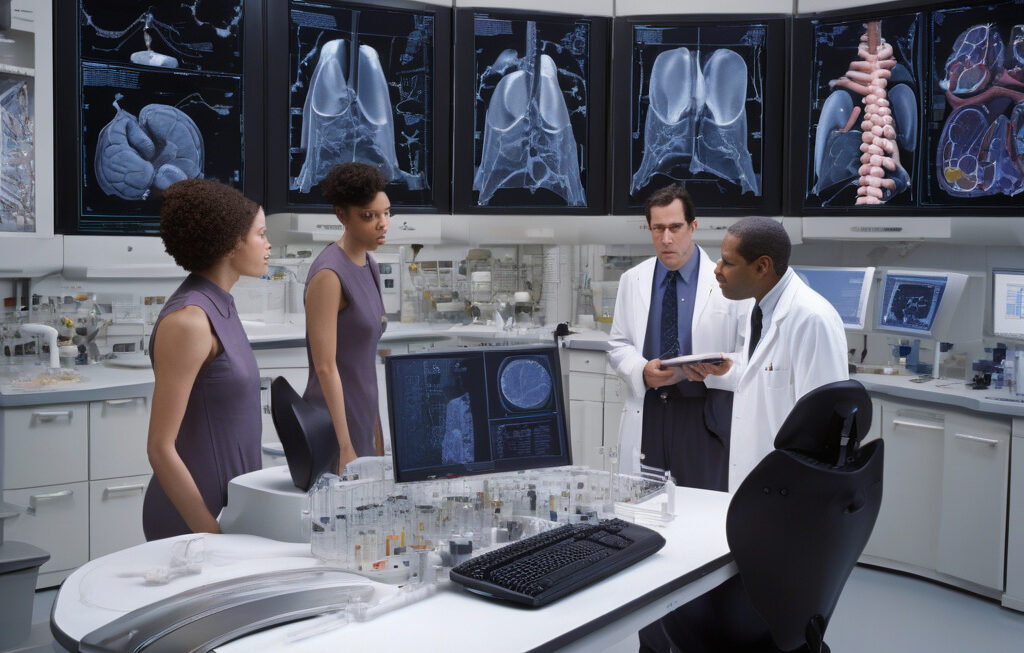AI-assisted Multi-Disease CT Scans Revolutionize Cancer Diagnostics in Beijing Hospital
In a groundbreaking move that could potentially transform the landscape of cancer diagnostics, a Beijing hospital has recently introduced AI-assisted multi-disease CT scans. This innovative technology has garnered significant attention not only for its potential to revolutionize the way diseases are detected and diagnosed but also for its recent FDA designation as a ‘Breakthrough Device’, underscoring its promise in cancer diagnostics.
The introduction of AI-assisted multi-disease CT scans marks a significant milestone in the field of healthcare technology. By harnessing the power of artificial intelligence, these scans are capable of detecting a wide range of diseases with unprecedented accuracy and efficiency. In the context of cancer diagnostics, this technology holds immense promise in enabling early detection, which is crucial for improving patient outcomes and survival rates.
One of the key advantages of AI-assisted multi-disease CT scans is their ability to analyze a multitude of data points in a short period. By rapidly processing vast amounts of medical imaging data, these scans can identify subtle abnormalities that may not be easily detectable through traditional diagnostic methods. This not only streamlines the diagnostic process but also reduces the likelihood of human error, thereby enhancing the overall reliability of the results.
The recent FDA designation of this technology as a ‘Breakthrough Device’ further underscores its potential impact on cancer diagnostics. The Breakthrough Devices Program is designed to expedite the development and review of medical devices that have the potential to provide more effective treatment or diagnosis of life-threatening or irreversibly debilitating diseases. By receiving this designation, the AI-assisted multi-disease CT scans have been recognized for their innovative approach and the significant benefits they offer in the field of cancer diagnostics.
Moreover, the introduction of AI-assisted multi-disease CT scans in a Beijing hospital not only highlights China’s commitment to embracing cutting-edge technologies in healthcare but also sets a new standard for precision medicine on a global scale. As the demand for more personalized and efficient diagnostic tools continues to grow, technologies like AI-assisted multi-disease CT scans are poised to play a pivotal role in shaping the future of healthcare.
The implications of this technology extend far beyond cancer diagnostics, with the potential to revolutionize the detection and management of various other diseases as well. By leveraging the power of artificial intelligence, healthcare providers can offer more accurate diagnoses, personalized treatment plans, and better clinical outcomes for patients across the board.
In conclusion, the launch of AI-assisted multi-disease CT scans in a Beijing hospital represents a significant step forward in the realm of healthcare technology. With its potential to transform cancer diagnostics and revolutionize the way diseases are detected and managed, this innovative technology holds immense promise for the future of healthcare. As it continues to evolve and make strides in the field, AI-assisted multi-disease CT scans are poised to redefine the standards of precision medicine and usher in a new era of healthcare innovation.
AI, Multi-Disease, CT Scans, Cancer Diagnostics, Breakthrough Device












